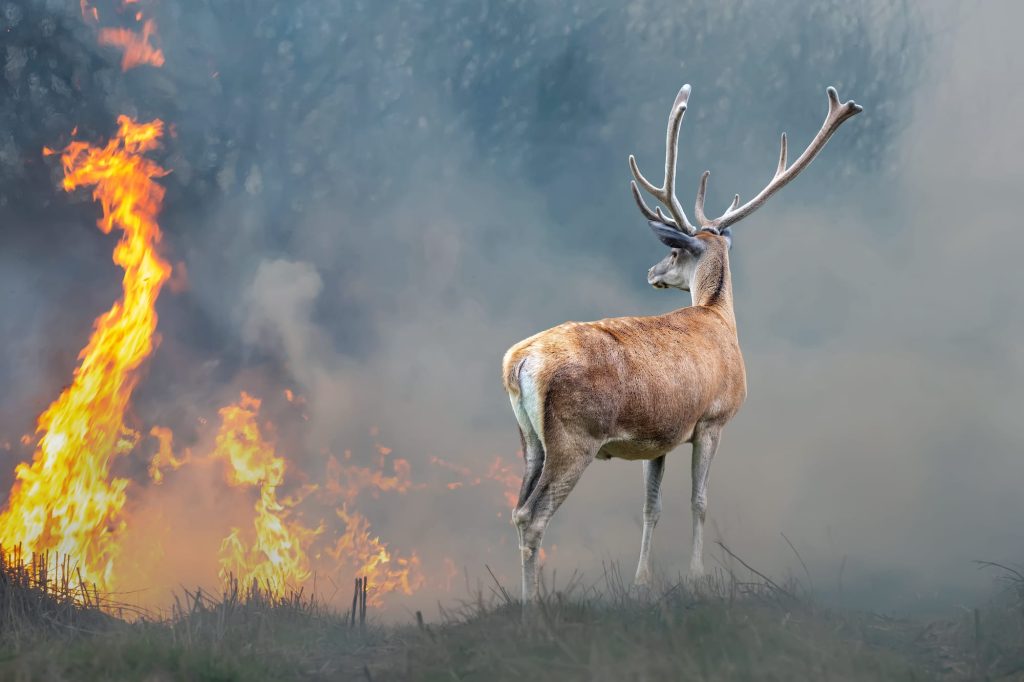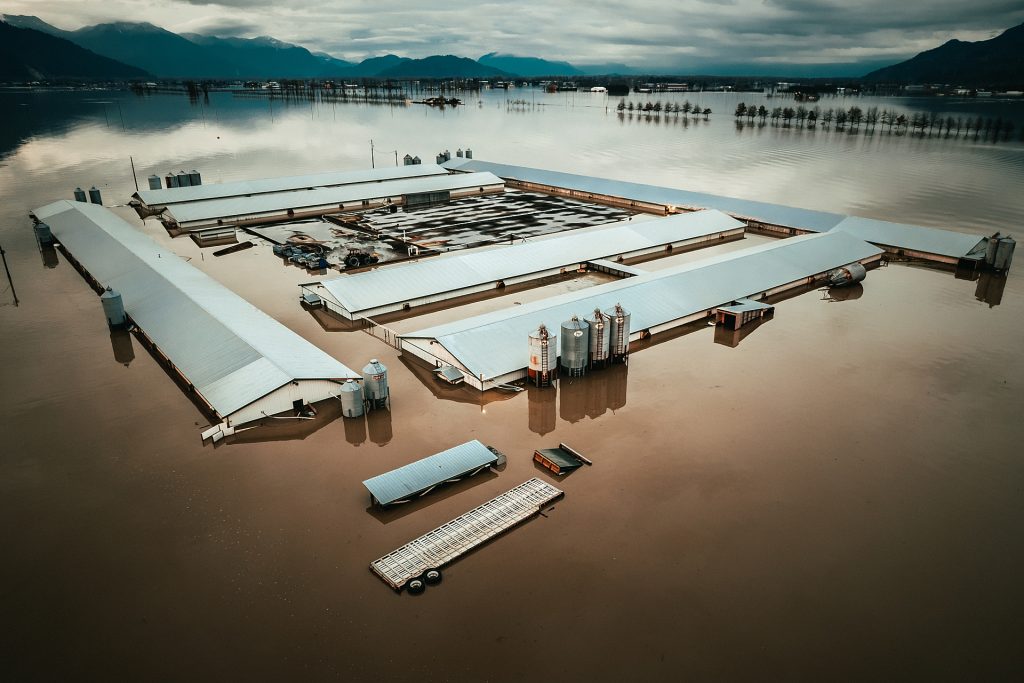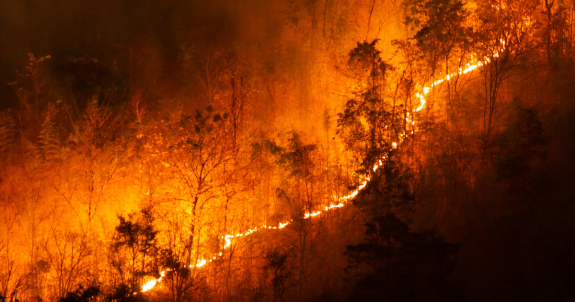Wildfires are raging across British Columbia and the Northwest Territories, damaging several towns and forcing thousands of residents to evacuate, including 19,000 residents from Yellowknife and 30,000 in the Okanagan. The British Columbia government has declared a state of emergency and is urging the public to closely monitor wildfire updates.
There are hundreds of active wildfires in both provinces that have been largely caused by dry and windy conditions, mixed with dry lighting—which has not only sparked new fires, but has caused swift and terrifying growth in existing ones.
Canada is in the midst of a record-breaking wildfire season. Wildfires have burned more acres in Canada this year than at any other time in recorded history. Wildfires are made worse by climate change, which increases the frequency and severity of natural disasters.
Animal Agriculture is a Climate Disaster
One of the leading causes of climate change is the animal agriculture industry. Studies estimate that animal agriculture is responsible for at least 14% of all greenhouse gas emissions—as much as the entire transport sector. Greenhouse gasses, including carbon dioxide and methane, trap the sun’s heat and prevent it from returning into the atmosphere, raising global temperatures.
The animal agriculture industry often tries to downplay its effect on the environment through denial, misdirection, and relentless greenwashing campaigns. But there’s nothing green about meat, eggs, or dairy. Terms like “regenerative grazing”, “low-carbon chicken”, and “sustainable beef” are just some of the misleading buzzwords used to dupe caring consumers into consuming animal products.
Moving to a plant-based food system will not only help animals, but help combat climate change and its devastating effects.

Weather Emergencies Wreak Havoc on Animals
Like people, wildfires pose a serious risk to animals in the wild and on farms.
Wild animals desperately try to flee or seek shelter to protect themselves from the flames. After wildfires are gone, many of the surviving animals die from the devastating loss of their habitats, food sources, and nesting sites.
The vast majority of farmed animals in Canada are raised in factory farms in large numbers, and are uniquely vulnerable to being left behind to suffer during emergencies, including wildfires, heat dome events, and floods.
Documents obtained by Animal Justice revealed that at least 651,000 chickens and other birds died on farms during the 2021 British Columbia heat dome event. The same year, 640,000 chickens, pigs, and cows died due to catastrophic flooding in the province.

Limit Farm Sizes to Protect Farmed Animals
In Canada, there are no regulations setting out welfare standards for farmed animals, and no legal limit on the number of animals that can be housed on farms.
For years, Animal Justice has been calling on governments to cap farm sizes so that all animals can be realistically evacuated during weather emergencies, and to make emergency rescue plans a legal requirement.
We will continue to push for an end to the current industrialized farming system, which not only puts animals at risk from climate disasters, but subjects them to unimaginable cruelty in mass confinement.




